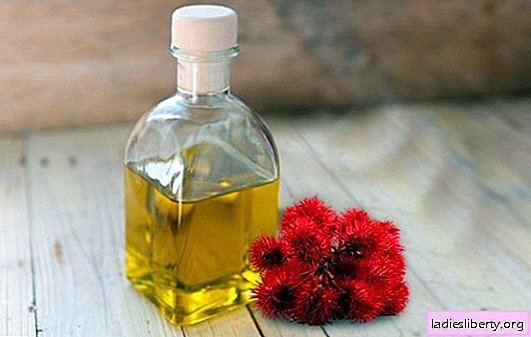
Inflammation of the walls of blood vessels or vasculitis is a pathology of the human body, in which various blood vessels (veins, arteries) are affected.
As a result of this, blood circulation is disturbed and death of tissues supplied with “diseased” vessels is observed.
Consider in more detail the symptoms of inflammation of the walls of blood vessels and methods of treating this ailment.
Vascular wall inflammation: causes
The following causes of inflammation of the walls of blood vessels are distinguished:
1. The defeat of the body by various severe bacterial or viral infections.
2. A person’s genetic predisposition to vasculitis (the chance of getting this pathology is significantly increased if someone from close relatives suffers from vasculitis).
3. Vascular inflammation as a reaction to vaccination. In addition to vascular inflammation, a person may develop other complications in the condition.
4. Contacting the body with poisons of biological origin (for example, this happens in the treatment of cancer pathologies).
5. Strong hypothermia, or vice versa, overheating of the body.
6. Ingestion of various harmful chemicals.
7. Serious injury.
8. Sunburn or thermal damage to the skin of varying degrees of damage.
9. Acute infectious diseases.
10. Violation of blood coagulation.
Inflammation of the walls of blood vessels: types, symptoms and signs
There are three groups of vasculitis:
1. Giant cell group. In this case, the disease affects large vessels in the body. It is considered the most dangerous, as it can lead to sharp deterioration in the patient's condition.
2. Nodular vasculitis causes inflammation of medium-sized vessels. They usually affect the arteries of the heart, intestines, and lungs.
3. Vasculitis, which affects small vessels. As a rule, they are localized in the respiratory tract and are accompanied by purulent and bloody discharge from the nose.
Inflammation of the walls of blood vessels has the following characteristic symptoms and manifestations:
1. Fever and fever.
2. Increased blood pressure.
3. The appearance of small hemorrhages on the skin, which can be localized in various parts of the body (most often it is a shin, feet, thighs or hands).
4. If the disease affects the blood vessels of the heart, then the patient develops arrhythmia, bradycardia and other pathologies. In more severe cases, vasculitis can cause a heart attack, vascular necrosis, etc.
5. The appearance of acute pain in the joints for no reason.
6. Weakness.
7. Loss of appetite.
8. Severe pain and burning in the legs.
9. The appearance of a skin rash develops due to damage to the subcutaneous vessels. In this case, the rash itself can have different sizes - from a pea to large spots, the size of an egg. The color of the rash will be bright red or purple. Typically, such a rash is accompanied by severe itching and swelling of the limbs. It is localized on the lower part of the legs and lower leg.
10. The appearance of mouth ulcers and abdominal pain indicates a violation of blood circulation in the intestines and inflammation of the intestinal arteries.
11. If the vessels of the eyes are affected, then the patient may experience itching and redness of the cornea. There is also a risk of short-term vision loss.
12. Vasculitis, which is localized in the brain, can cause memory impairment, headaches, and dizziness.
Wherever vasculitis is localized, it is always accompanied by a prolonged course, frequent exacerbations and complications. The prognosis of such a disease depends on the form of the course of inflammation, the degree of neglect of the pathology and the clear localization of vasculitis.
Vascular wall inflammation: diagnosis and treatment
When the first signs of vasculitis appear, you should consult a doctor. After the initial examination and medical history, the doctor will prescribe the following diagnostic procedures:
1. General clinical blood and urine tests.
2. MRI.
3. Allergic tests.
4. Analysis of the state of immunity.
5. Complete examination of the cardiovascular and respiratory systems.
6. Angiography.
Treatment of inflammation of the walls of blood vessels depends on the localization of vasculitis, its neglect and the degree of damage to the involved internal organs. Those patients who have been diagnosed with chronic vascular inflammation will need to take regular prescribed medications.
Patients with a mild form of vasculitis are shown complex treatment with prescribed medications.
The main objective of such therapy is to reduce inflammation and eliminate the causes of its development. Thus, traditional treatment involves the following:
1. Prescribing drugs that will affect the patient’s blood density and reduce the risk of blood clots. At the same time, they are especially indicated if the patient’s vessels of the brain become inflamed (in this state, a person is very susceptible to the development of strokes).
2. Prescribing non-steroidal anti-inflammatory drugs (Parmidin).
3. In severe vasculitis, which is accompanied by many complications, the patient is recommended the appointment of glucocorticosteroids.
4. The use of anticoagulants (Heparin) is mandatory in this therapy.
5. At high temperatures, antipyretic drugs are used.
6. The use of cytostatics gives good results in the treatment of vasculitis. These drugs prevent cell proliferation and reduce antibody formation.
7. In some varieties of vasculitis, it is useful to purify the patient’s blood using techniques such as hemosorption and plasmapheresis.
8. When the course of the disease in mild forms, the use of non-steroidal drugs (Voltaren) is recommended.
9. To prevent the formation of microthrombi, Heparin is often prescribed.
10. With the development of complications of vasculitis, hormonal drugs are prescribed.
In severe forms of pathology, the patient is shown surgery. In this case, it is usually practiced to remove part of the affected or clogged vessel. An artificial prosthesis is installed in its place. If the portion of the removed vessel is small, then both of its parts are simply stitched together.
Vascular wall inflammation: treatment features
In addition to the main therapy, during treatment it is advisable for the patient to adhere to the following medical recommendations:
1. Quit smoking and drinking alcohol completely.
2. Limit physical activity.
3. Take plenty of fluids. It will kindle blood, and protect against blood clots. Especially useful is green tea. It will help improve vascular permeability, strengthen their walls and relieve inflammation.
Moreover, with the regular use of green tea, you can lower blood cholesterol and increase the tone of the heart muscle. This is especially useful for vasculitis.
4. Patients are advised to take herbal decoctions that contain vitamin K.
These include: St. John's wort, nettle and yarrow.
5. It is very useful to eat berries, which help to improve blood composition and strengthen blood vessels (dogrose, blackcurrant).
In the absence of timely treatment, vasculitis can cause the following complications in the patient’s state of health:
1. Peritonitis.
2. Stroke.
3. Myocardial infarction.
4. Intestinal bleeding.
5. Arterial thrombosis.
6. The development of chronic renal or heart failure.
7. Pulmonary bleeding.
8. The transition of the disease into a chronic form.
9. Chronic pain.
10. Abscess of the abdominal cavity.
11. Violation of the liver.
12. Violation (complete loss) of vision.
13. Memory impairment is possible with vasculitis of the arteries of the brain.
To prevent the development of vasculitis, you should adhere to such tips:
1. Avoid hypothermia and overheating of the body.
2. To temper the body and strengthen the immune system. To do this, it is recommended to play sports, eat a balanced diet and have a healthy sleep.
3. Refuse bad habits.
4. Do not take any medications without a doctor's prescription.
5. Do not carry out unscheduled vaccinations and vaccinations.
6. When working in hazardous conditions, be sure to wear a face shield.
7. If you have the first suspicion of this disease, you should immediately consult a doctor.
8. With a genetic predisposition to vasculitis, it is recommended to periodically drink complexes of drugs that strengthen blood vessels.
9. Avoid stress and severe nervous strain.











